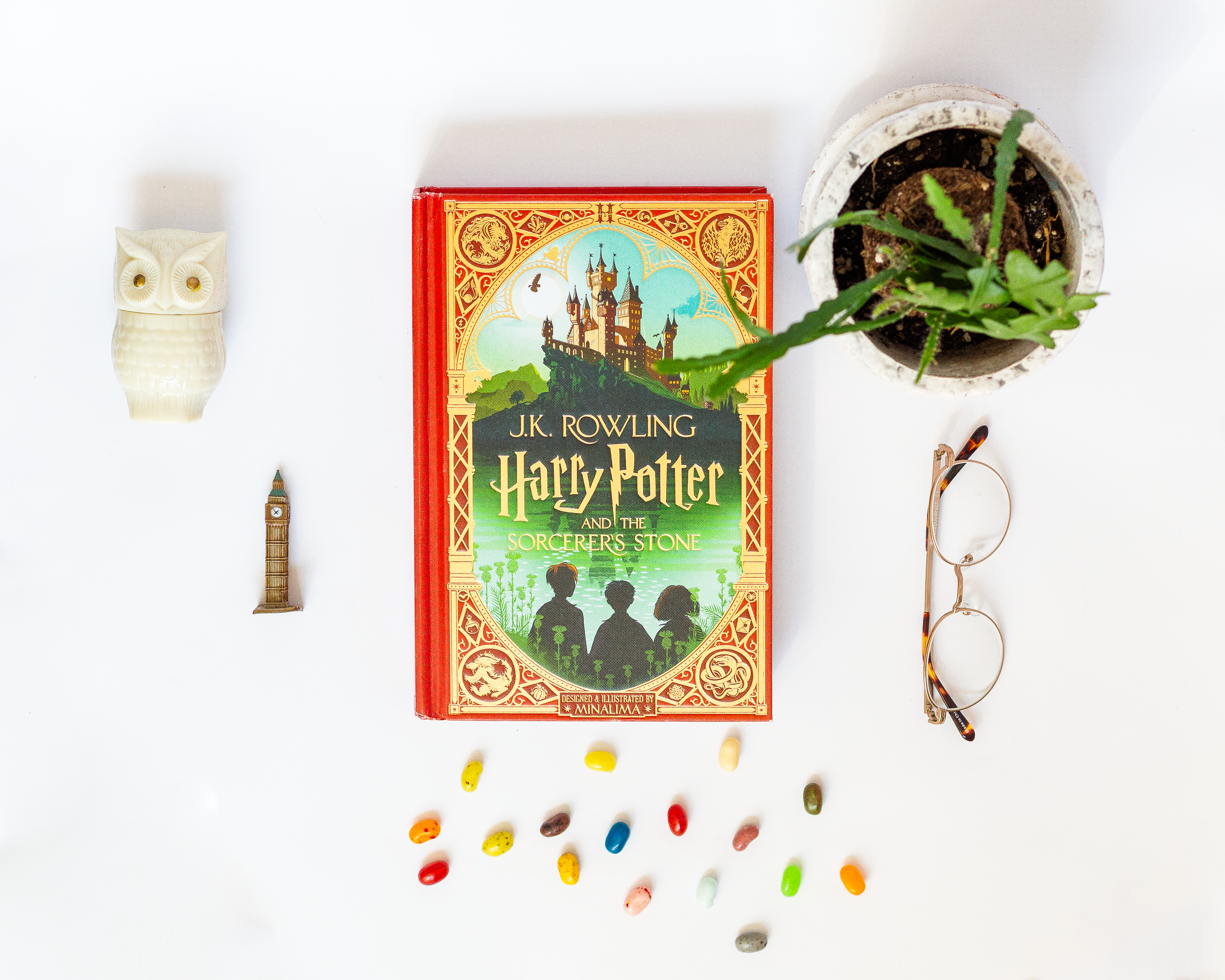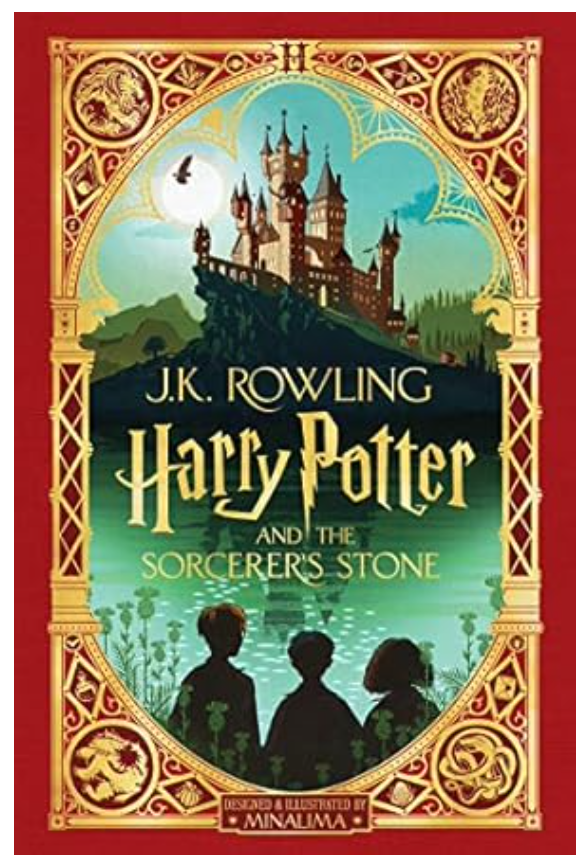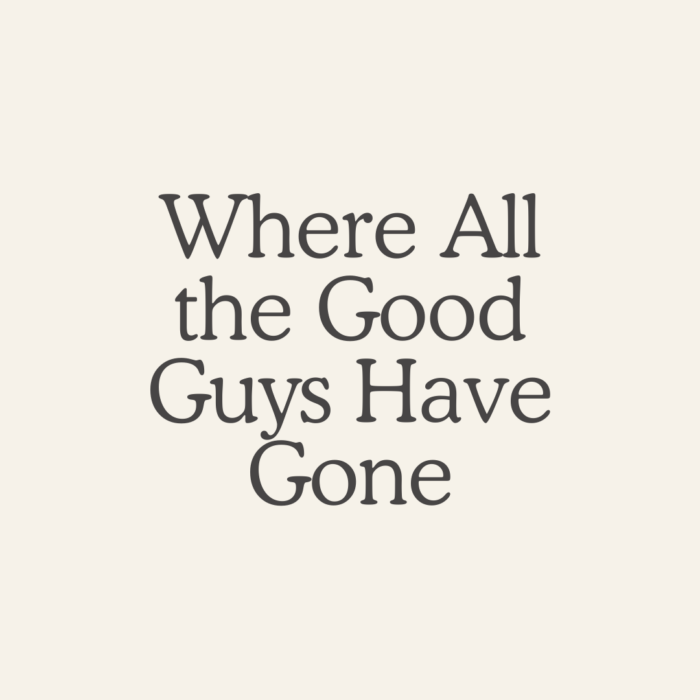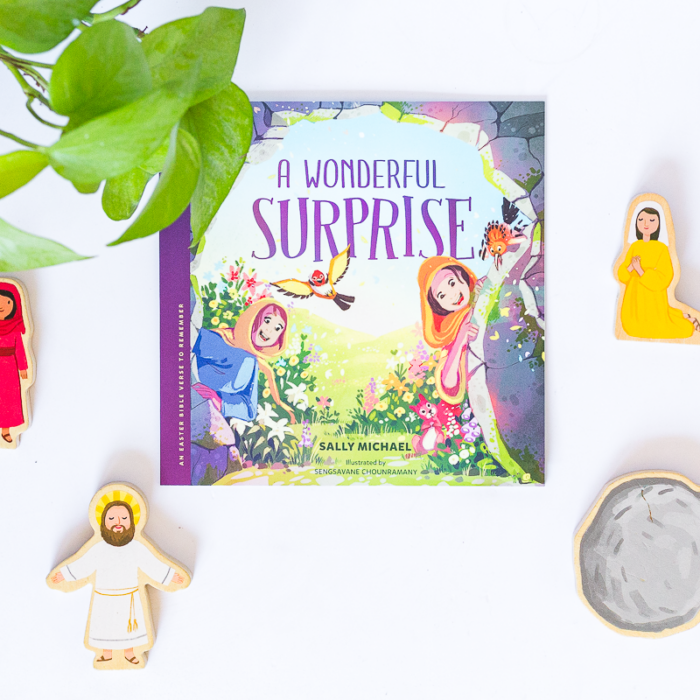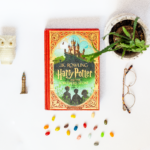This post contains affiliate links
Harry Potter and the Sorcerer’s Stone is the American title of the British young adult novel, Harry Potter and the Philosopher’s Stone. This isn’t a book I would’ve been permitted to read at the time of its debut due to the assumption that it contained elements of witchcraft. After decades of missing out on many cultural references, my curiosity was piqued. Around Christmastime, I bought myself a lovely copy of the book so my husband could gift it to me (I do the gift buying in our family). Upon recently feeling the desperate need to add fiction to my reading diet, I began reading Harry Potter and the Sorcerer’s Stone and finished it in 3 days.
The book introduces readers to an eleven year old boy named Harry who goes to live with his horrible aunt, uncle, and cousin upon the death of his parents. As the book progresses, Harry learns that he’s a wizard and has been invited to study at Hogwarts School of Witchcraft and Wizardry. Although raised in the Muggle (humans who are not witches or wizards) world, he comes to learn that he is famous in the wizard world as the one who killed his parents attempted to also kill him but was unsuccessful.
Harry knows next to nothing about being a wizard but begins to grow accustomed to it with the help of his friends and teachers. Containing elements of mystery and characters full of charm, the story keeps readers glued to its pages until the very end.
Having read Harry Potter and the Sorcerer’s Stone, it is easy to understand why the book became famous. So much of the creativity involved in the story reminded me of classic children’s literature I consumed as a child and teenager like Peter Pan, Mary Poppins, and The Chronicles of Narnia (all works also penned by British authors). Rowling’s writing is fun, compelling, and absolutely brilliant. She is a gifted creator not only in her composition of the characters but even in the details of the story like creating the entire sport of Quidditch and The Mirror of Erised which reveals to characters everything they’ve ever wanted (erised spelled backward is desire).
While I recall many Christians being quick to write this novel off as containing witchcraft at the time of its release, I was fascinated to find it full of Christian symbolism. Elements such as good versus evil, references to transfiguration, and remarks about death and the human heart naturally not wanting what’s best are just a few of them. When I began writing this review, I was reading the second book in the series, Harry Potter and the Chamber of Secrets which mentions Harry “hoping against hope” (pg. 65). This immediately brought to mind Romans 4:18.
Christians are free in Christ to read or not read Harry Potter and the Sorcerer’s Stone and the successive titles in the series. As far as I was able to tell, the book in no way references pagan or occult ties to witchcraft and falls more along the lines of fantasy. However, reading or not reading it is ultimately a matter of conviction (Romans 14) and Christian freedom (Galatians 5:13-14). Were I to encounter a brother or sister who had a past involving the occult or paganism, it would be understandable to me that they might not feel comfortable reading the Harry Potter series.
Regarding the debate as to whether or not Christians should read Harry Potter, I’ve found the analysis by Dr. Emily Griesinger, an English professor at a Christian university, so helpful. In it she wrote, “A responsible literary approach to Harry Potter, then, would understand that Rowling uses witchcraft and wizardry in the context of a fantasy world and does not portray or mean to portray witchcraft as practiced and promoted in the real world of the occult.
Despite potential problems associated with magic, witchcraft, and the occult, Harry Potter can be interpreted as a creative, narrative fantasy grounded in Christian ethics and a Christian theology of hope. As a literary device the magic in Harry Potter should not and need not be linked with the occult at all. It can be read simply as a metaphor for power. If we use power wisely, like Dumbledore and Harry Potter, we win. If we abuse power and use it for evil, like Voldemort, we lose.
If nothing else, Harry’s journey toward maturity as a wizard suggests that in the battle between good and evil our choices matter. We gain hope from Harry Potter—hope that in an age where moral goodness does not seem important and where evil is on the rise, one little nerdy person, not terribly smart or good-looking, can make a difference. Thus Harry Potter articulates or narrates one of the most basic human hopes, the hope that we can do something to make the future better, that because of what we do or do not do, as Filmer says, ‘there will be a future.’
I strongly reject the fear-driven position that would ban or burn Harry Potter, along with the inflammatory rhetoric and attitude of hostility that have characterized much of the Christian debate. A skillful work of fantasy that does not openly confirm Christianity or a Christian worldview, Harry Potter still offers a truthful articulation of hope. From such fantasies all people, including Christians, can derive strength of life. From such fantasies we derive hope.”
For younger or perhaps more sensitive readers, the story may be a bit scary at times so you’ll have to discern for yourself if this is a good fit for reading with your child. I hope to read it with all of my children at some point. Overall, Harry Potter and the Sorcerer’s Stone is a clever and compelling story and I greatly enjoyed it. At the time of this writing, I’ve completed the second book in the series, Harry Potter and the Chamber of Secrets and look forward to reading the third book, Harry Potter and the Prisoner of Azkaban.





